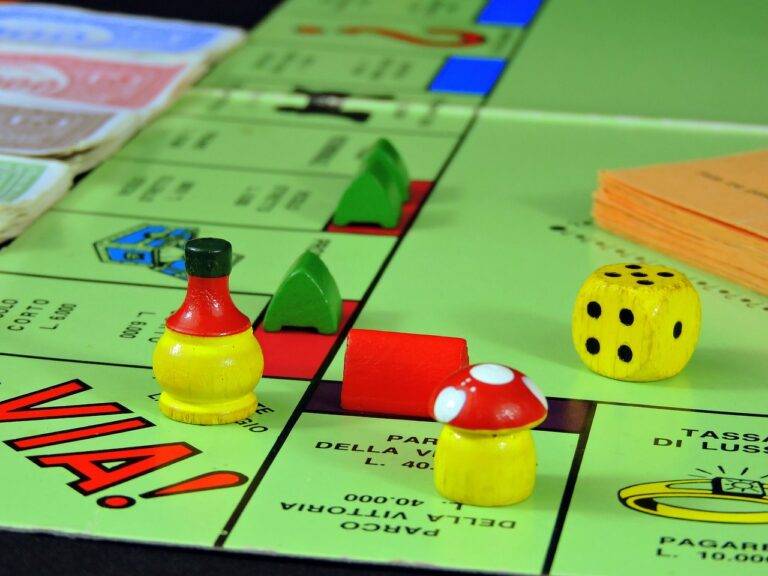The Psychology of Home Deconstruction: 11xplay pro, Tiger 247 login, Betbook
11xplay pro, tiger 247 login, betbook: When it comes to home deconstruction, many people often focus on the physical aspects of the process – what materials to use, how to demolish walls, and so on. However, the psychology behind home deconstruction is just as important and often overlooked.
Our homes are more than just physical structures; they hold memories, emotions, and a sense of security. Therefore, deconstructing a home can be a deeply emotional and psychological process for many individuals. In this article, we will delve into the psychology of home deconstruction and explore how it can impact our mental well-being.
Understanding the Emotional Attachment to Our Homes
Our homes are often a reflection of ourselves, our personalities, and our identities. We invest time, effort, and love into creating a space that feels safe and comfortable for ourselves and our loved ones. As a result, our homes become deeply intertwined with our sense of self and emotional well-being.
When it comes time to deconstruct a home, whether for renovation, moving, or other reasons, we are essentially dismantling a part of ourselves. This can trigger a range of emotions, from sadness and nostalgia to anxiety and even grief. It is important to recognize and acknowledge these feelings as a natural part of the deconstruction process.
The Impact of Change on Mental Well-being
Change is often feared and resisted, even when it is necessary for growth and progress. Deconstructing a home represents a significant change in our lives, and this can be unsettling for many individuals. The uncertainty of what comes next, the loss of familiarity, and the disruption of routine can all contribute to feelings of anxiety and stress.
It is important to take care of our mental well-being during the home deconstruction process. This may involve seeking support from friends and family, practicing self-care activities such as meditation or exercise, and giving ourselves permission to grieve the loss of our old home. By acknowledging and addressing our emotions, we can navigate the process of home deconstruction with greater ease and resilience.
The Psychology of Letting Go
Letting go of a home can be a challenging task, especially if we have lived in it for many years or have strong sentimental attachments to it. We may find ourselves clinging to memories, possessions, and even the physical space itself, reluctant to move on to something new.
The psychology of letting go is complex and multifaceted. It involves coming to terms with the past, accepting the present, and embracing the future. It requires us to release attachments, both physical and emotional, and to trust in our ability to adapt and thrive in new surroundings.
As we deconstruct our homes, we are essentially letting go of the past and making way for the future. This process can be cathartic and transformative, enabling us to shed old baggage, redefine our identities, and create new beginnings. By embracing the psychology of letting go, we can turn the deconstruction of our homes into a positive and empowering experience.
The Importance of Psychological Preparation
Preparing ourselves mentally and emotionally for home deconstruction is essential for a smooth and successful transition. This may involve setting aside time to reflect on our feelings, seeking professional counseling or therapy if needed, and engaging in mindfulness practices to stay grounded and present.
It is also helpful to communicate openly with our family members and loved ones about the deconstruction process. By sharing our emotions, concerns, and hopes with others, we can build a support network that will help us navigate the challenges of home deconstruction with greater ease and resilience.
Ultimately, the psychology of home deconstruction is a deeply personal and individual experience. By acknowledging and addressing our emotions, understanding the impact of change on our mental well-being, embracing the psychology of letting go, and preparing ourselves psychologically for the process, we can transform the deconstruction of our homes into an opportunity for growth, healing, and renewal.
FAQs
Q: How can I deal with feelings of sadness and nostalgia during the home deconstruction process?
A: It is important to acknowledge and validate your emotions, allowing yourself to grieve the loss of your old home. Engage in self-care activities, seek support from friends and family, and consider talking to a therapist if needed.
Q: How can I prepare myself psychologically for home deconstruction?
A: Take time to reflect on your feelings, communicate openly with loved ones, and engage in mindfulness practices to stay grounded and present. Consider seeking professional counseling or therapy to help you navigate the emotional challenges of deconstructing your home.
Q: How can I embrace the psychology of letting go and move on to something new?
A: Practice acceptance of the present moment, release attachments to the past, and trust in your ability to adapt and thrive in new surroundings. Focus on creating new beginnings and opportunities for growth and transformation.







